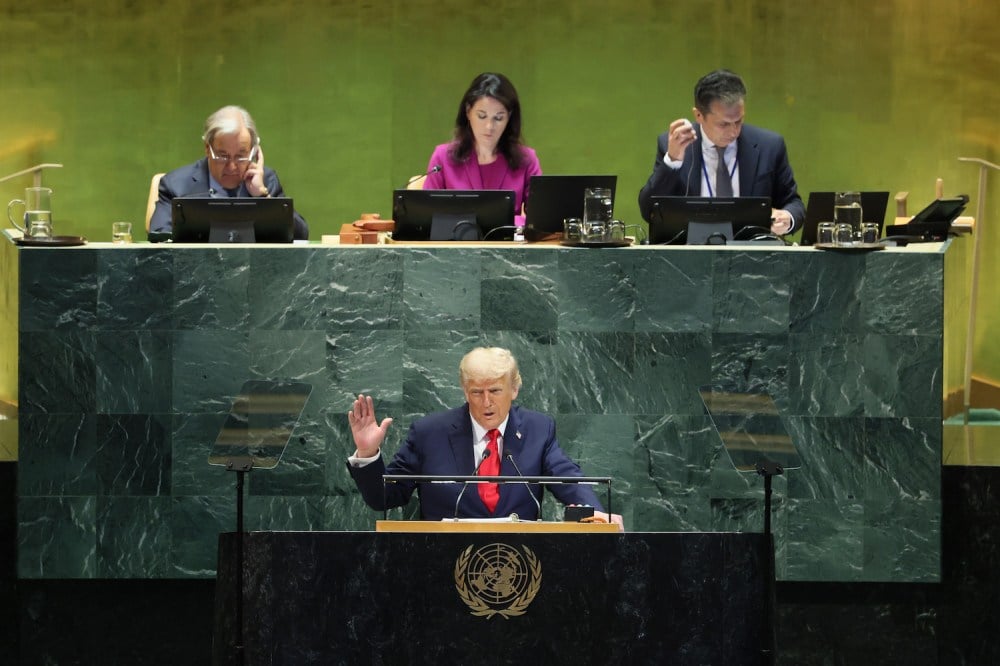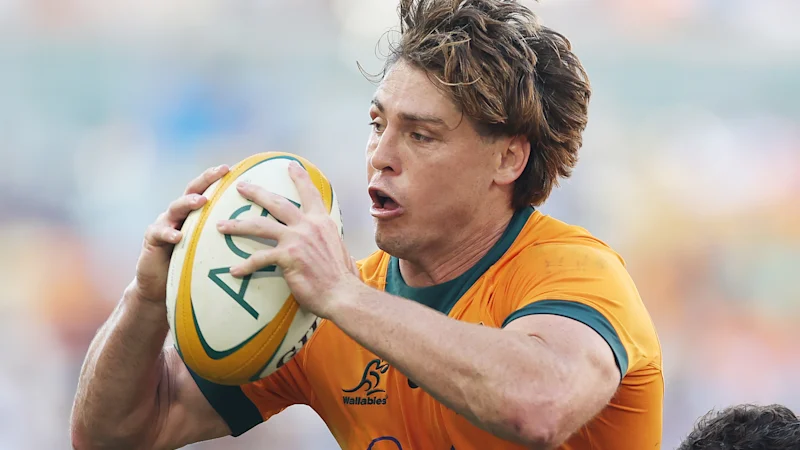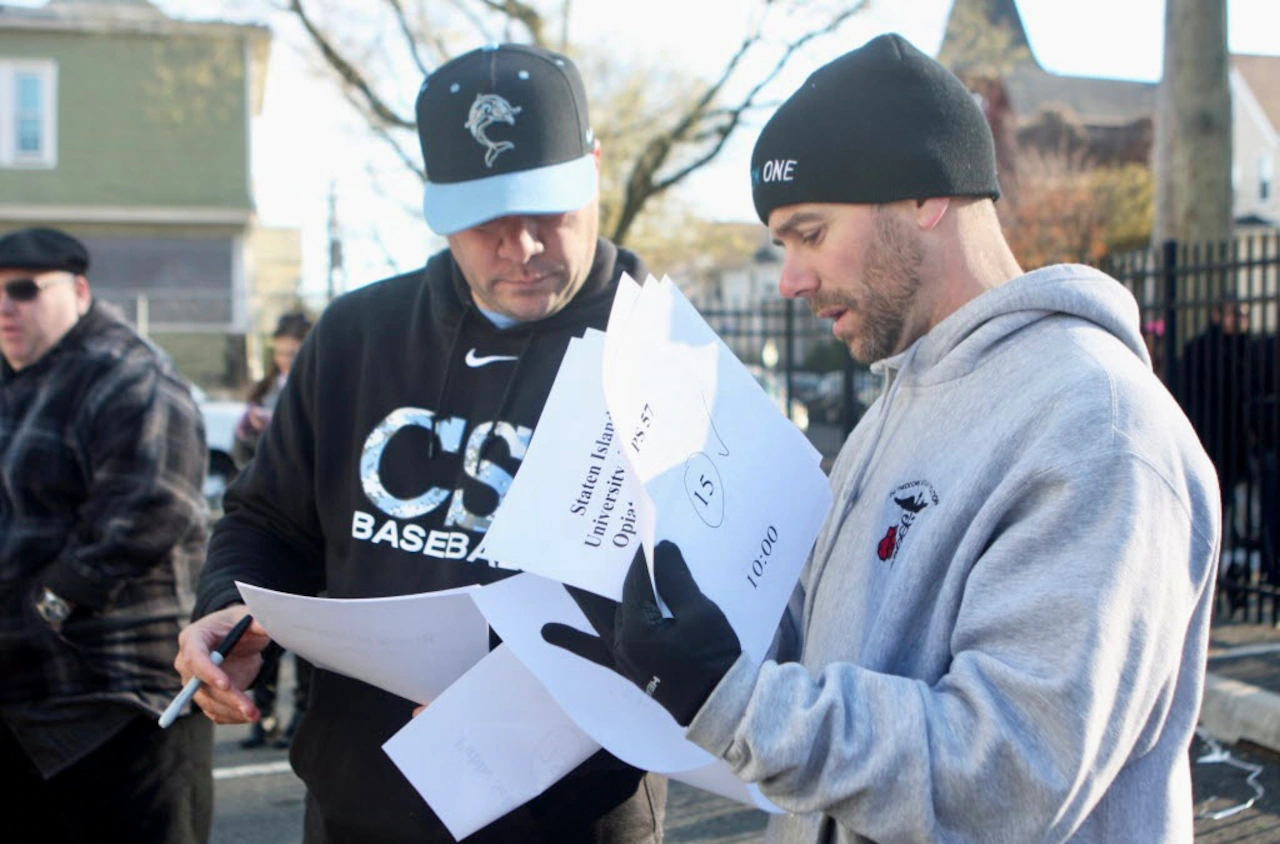
Welcome back to World Brief, where we’re looking at U.S. President Donald Trump’s speech at UNGA, East Asia bracing for Super Typhoon Ragasa, and former Philippine President Rodrigo Duterte being charged with crimes against humanity.
‘Your Countries Are Going to Hell’
World leaders addressing the United Nations General Assembly (UNGA) on Tuesday were given 15 minutes to speak. U.S. President Donald Trump, however, spoke for nearly an hour, delivering an oftentimes rambling, self-indulgent address akin to his speeches on the campaign trail.
“This is indeed the golden age of America,” Trump began, before launching into a tirade against the very international organization that he was addressing.
From complaining about the building’s apparently poorly functioning teleprompter and escalator to accusing the United Nations of “funding an assault on Western countries and their borders,” the U.S. president refused to pull his punches when expressing his vitriol for the institution that the United States helped found.
“What is the purpose of the United Nations?” Trump asked. “All they seem to do is write a really strongly worded letter and then never follow that letter up. It’s empty words, and empty words don’t solve war.”
Instead, Trump claimed that his administration singlehandedly solved “seven unendable wars.” “The United Nations wasn’t there for us,” he added, once again touting how his self-proclaimed peacemaker-in-chief credentials should earn him the Nobel Peace Prize. Trump has claimed sole responsibility for solving conflicts between Cambodia and Thailand, Kosovo and Serbia, Rwanda and the Democratic Republic of the Congo, India and Pakistan, Israel and Iran, Armenia and Azerbaijan, and Egypt and Ethiopia.
(Later on Tuesday, Trump appeared to backtrack on some of his own comments, telling U.N. chief António Guterres, “I may disagree with [the U.N.] sometimes, but I am so behind it because I think the potential for peace for this institution is so great.”)
When not blasting the United Nations, Trump took aim at immigration, warning Washington’s allies to bolster their borders. He praised his own administration’s efforts to crack down on border crossings, claiming that for the past four months, the number of migrants entering the United States illegally “has been zero.” He also praised El Salvador for “receiving and jailing so many criminals that entered our country,” a move that activists have heavily criticized due to San Salvador’s own history of human rights abuses. Contrary to Trump’s statement, the vast majority of those deported to the Central American country had no apparent criminal record.
Throughout his speech, Trump called climate change the “greatest con job” while trumpeting fossil fuels, threatened Brazil with continued economic hardship in the two countries’ ongoing trade war, warned that recognizing Palestine would only reward Hamas, and demanded that European nations stop purchasing Russian oil. Trump also took time to warn against nuclear armament and laud U.S. strikes on Iran’s nuclear facilities in June.
Notably absent from his speech, though, was any mention of the humanitarian catastrophe in Gaza, the civil war in Sudan, or Russia’s recent aggressive maneuvers against NATO members.
“I’m really good at this stuff,” Trump told his fellow world leaders. “Your countries are going to hell.”
Today’s Most Read
Ahead of His U.N. Speech, Remember That Trump Is Learning Geopolitics in Real Time by Suzanne Nossel
America’s Infuriating and Irreplaceable Role at the U.N. by Richard Gowan
Beijing’s Double Standards in the South China Sea by Derek Grossman
What We’re Following
Super Typhoon Ragasa. Hong Kong and parts of southern China shut down on Tuesday in preparation for Super Typhoon Ragasa, which is expected to be the world’s most powerful tropical cyclone this year. Ragasa first hit the Philippines on Monday with winds at more than 165 miles per hour, the equivalent of a Category 5 hurricane. The so-called “King of Storms” is expected to make landfall on Wednesday at lower wind speeds and travel west toward Vietnam, potentially affecting millions of people.
To prepare for the storm, Hong Kong has upgraded its storm warning to a 10, the highest level, and has suspended most passenger flights until Thursday. More than 700 flights have already been disrupted. Around 370,000 people have evacuated thus far, and Beijing has ordered schools and some businesses in at least 10 cities to close.
The extent of the damage already caused by Ragasa is still unclear, but the Philippine meteorological agency has warned of “life-threatening” conditions that could trigger major flooding and landslides. At least three people have been killed so far.
Crimes against humanity. Prosecutors at the International Criminal Court (ICC) have formally charged former Philippine President Rodrigo Duterte with three counts of crimes against humanity, according to documents dated July 4 and made public on Monday. The charges accuse Duterte of being involved in the killings of at least 76 people while he was president as well as when he was vice mayor and mayor of Davao City.
Duterte instructed and authorized “violent acts including murder to be committed against alleged criminals, including alleged drug dealers and users,” the 15-page charge sheet states. The killings allegedly took place between 2011 and 2019, though prosecutors added: “The attack included thousands of killings, which were perpetrated consistently throughout the charged period.”
Duterte did not respond to the charge sheet, though he has repeatedly denied authorizing extrajudicial killings during his so-called war on drugs. Philippine authorities arrested Duterte in March on an ICC warrant. He was scheduled to appear in court on Tuesday, but his appearance was postponed to allow the judges time to evaluate arguments by Duterte’s legal team that the 80-year-old is not fit to stand trial, citing health concerns.
Leaving the ICC. Burkina Faso, Mali, and Niger announced their withdrawal from the ICC on Monday, calling the body an “instrument of neo-colonialist repression.” Instead, the three junta-led governments said they seek to establish “indigenous mechanisms for the consolidation of peace and justice,” echoing past claims by other regional leaders, notably Rwandan President Paul Kagame, that the ICC has an anti-African bias.
“The ICC has proven itself incapable of handling and prosecuting proven war crimes, crimes against humanity, crimes of genocide, and crimes of aggression,” the countries said in a joint statement. The withdrawal will take effect one year after the three nations officially notify the U.N. The ICC has yet to issue a response.
In recent years, Burkina Faso, Mali, and Niger have curbed defense cooperation with the West, particularly former colonial ruler France, and instead drawn closer to Russia, where President Vladimir Putin faces an ICC arrest order related to the war in Ukraine. In January 2024, the three African countries also announced their withdrawal from the Economic Community of West African States, later forming their own bloc, the Alliance of Sahel States; Burkina Faso and Mali both have militaries that have been accused of possible atrocity crimes against civilians, including summary execution.
Odds and Ends



